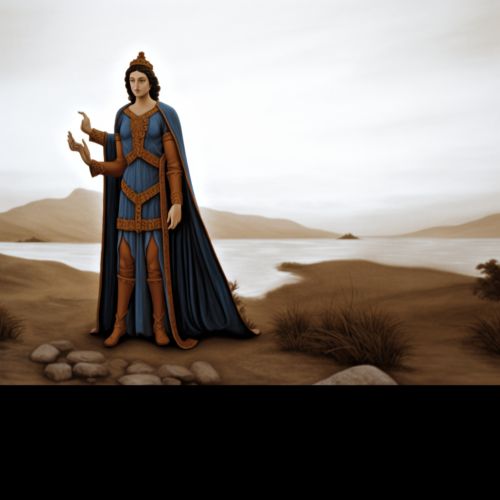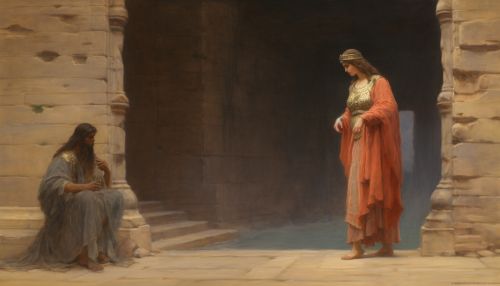Antigone (Sophocles play)
Background
"Antigone" is a tragedy by the ancient Greek playwright Sophocles, written around 441 BCE. Although it was written before his other two Theban Plays, chronologically it comes after the stories in "Oedipus the King" and "Oedipus at Colonus", and it picks up where Aeschylus' play "Seven Against Thebes" ends.
Plot
The story of "Antigone" begins in the aftermath of a civil war in Thebes. There are two brothers, Eteocles and Polyneices, who have killed each other in battle. Their uncle, Creon, has taken power. He has decided that Eteocles, who defended the city, will be honored and Polyneices, who attacked it, will be publicly shamed. The rebel brother's body will not be sanctified by holy rites, and will lie unburied on the battlefield, prey for carrion animals like worms and vultures, the harshest punishment at the time.


Antigone, the sister of the two brothers, defies Creon's order and buries Polyneices, claiming the sanction of the unwritten laws of the gods over the man-made laws of the state. She is caught, and Creon decrees that she be buried alive in spite of the fact that she is betrothed to his son, Haemon. The gods, through the blind prophet Tiresias, express their disapproval of Creon's decision, which convinces him to free Antigone and bury Polyneices. However, Antigone has already hanged herself rather than be buried alive. When Creon arrives at the tomb where she is to be interred, his son, Haemon, attacks him and then kills himself. When the news of their death is reported, Creon's wife, Eurydice, takes her own life. Creon is left in despair.
Themes
The major themes in Antigone, the third chronological play in Sophocles' Theban Trilogy, include natural law, pride, gender, blindness vs. sight, civil disobedience, family loyalty, and decision-making. The theme of natural law is seen in the play as Antigone contrasts the human-made laws of the state to the unwritten and unchanging laws of the gods. Antigone believes that man cannot overrule the decrees of the gods, and unlike her sister Ismene, she feels duty-bound to bury her brother Polyneices in spite of the edict of Creon.
Analysis
The play explores several contrasts, including the contrast between the laws of men and the laws of the gods, between loyalty to one's family and loyalty to the state, and between what is morally right and what is legally enforced. These conflicts are embodied in the characters of Antigone and Creon, making them tragic figures. Their inability to compromise leads to the destruction of their family, which ultimately leads to a realization of their erroneous ways.
Legacy
Antigone's moral stature and her determination to do what is right in the face of an unjust law has inspired many cultural, political, and intellectual figures. The play has been adapted and reinterpreted in various cultural and political contexts throughout history. It remains a staple of the theatrical canon, and is frequently performed today.
